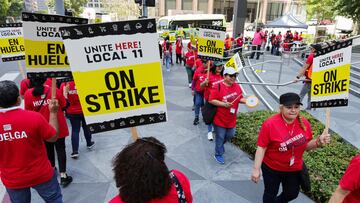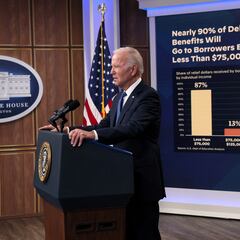Why are thousands of Southern California hotel workers striking?
Thousands of hotel workers in California are on strike just as visitors flood the area as summer begins. What drove workers to strike?


UNITED HERE! Local 11 is a Southern California-based union representing more than 15,000 workers in the food service and hospitality sector. Hotel workers in the area, which happens to be one of the most popular tourist destinations in the United States, approved a strike which began on 2 July.
BREAKING: Southern California hotel workers are ON STRIKE! Thousands walked off the job at properties across DTLA & Santa Monica. Dozens more properties remain without a Union contract. Visiting the area? Don't be a scab! Where are we striking? Learn more ⤵️ #SoCalHotelStrike pic.twitter.com/dnc58HhTPV
— UNITE HERE Local 11 (@UNITEHERE11) July 2, 2023
During one of the busiest seasons of the year, workers are flexing their power and showing that their patience has been exhausted.
According to the union, major hotel chains, including Hyatt, Hilton, Highgate, Accor, IHG, and Marriott, “received $15 billion in federal bailouts” throughout the pandemic, while workers were met with layoffs. This year, the hotel industries in Southern California have seen profits exceed those generated before covid-19 upended the hospitality sector. Workers have not shared in this prosperity, and with major events, including the World Cup and the Olympics, coming up, union members are making their importance felt.
Stagnant wages and the ever-increasing cost of living in Los Angeles
Related stories
Over half of the workers surveyed by the union reported: “that they either have moved in the past 5 years or will move in the near future because of soaring housing costs.” In 2022, the median annual wage for a hotel, motel, or resort clerk in the Los Angeles area was $35,530 or $17.08/hour. The median for maids and housekeeping cleaners, which also includes those employed outside of the lodging sector, was around a thousand dollars higher or around $17.57 per hour. Both of these figures are lower than the living wage, calculated by the MIT Living Wage Lab, needed to live in Los Angeles for a single adult with no children, which is $21.22. For single adults with one child, the living wage rises rapidly to $43.81.
Hear firsthand from strikers about their fight to stay healthy and housed. #SoCalHotelStrike pic.twitter.com/0DzszeWAVl
— UNITE HERE Local 11 (@UNITEHERE11) July 4, 2023
What are workers asking for?
In response to the cost of living increases and record profits generated through their labor, workers are demanding an increase in their wages of $10 an hour. Workers are also striking for improved healthcare benefits that provide quality coverage to themselves and their families at an affordable price. Lastly, with only around twenty-eight percent of employers in the accommodation and food service industry offering retirement benefits, these union members are demanding that a pension program be established to ensure “enable workers to retire with dignity.”

